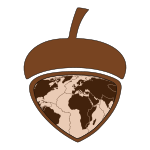|
|
|
|
Introduction Welcome to the Réseau Numérique en Terre Solide (NuTS), a CNRS thematic network (RT) dedicated to fostering a vibrant community of developers and users of numerical tools for solid Earth sciences. Our mission is to enhance the visibility, efficiency, and knowledge-sharing within this community through a series of conferences and training courses focused on digital science—ranging from data manipulation to high-performance scientific computing. We are thrilled to announce the third workshop of the NuTS RT, taking place from May 19th to May 22nd in Grenoble. This workshop will focus on data: its management, complex and heavy workflows, storage, analysis, visualization, representation, AI-driven data management, and information extraction. The event is divided into two parts: the first two days will feature scientific talks, while the last two days will offer hands-on practical sessions on two key topics (see the program below). During the practical sessions, participants will have the opportunity to work with Jupyter Notebooks and the Python programming language, leveraging the state-of-the-art computing resources provided by the MesoNET facility Phileas, hosted by the GLiCID mesocenter in Nantes. The practicals will cover a variety of topics, as outlined in the program below. We are also organizing a poster session dedicated to scientific projects that involve data management, representation, storage, and related challenges—particularly those still in progress and in need of further discussion. We encourage contributions from students and researchers interested in sharing their ongoing work and ideas with the community. Join us for this exciting workshop to learn from leading experts, gain hands-on experience in programming related to inverse problems, and connect with fellow researchers in solid Earth sciences. Don’t miss this opportunity to advance your skills and knowledge in numerical and computational science! The presentations and notebooks will be available here very soon… If you have any questions or need assistance for late registration, feel free to reach out to us. We look forward to welcoming you to Grenoble! Event Location: IMAG Auditorium (Institut d'informatique et mathématiques appliquées de Grenoble) Program
Monday, May 19th (Afternoon) 14h00 Introduction: Yann Capdeville (NuTS, LPG, CNRS, Nantes U.) 14h15 Presentation of the INRIA quadrant program: Alexandre Fournier (NuTS, IPGP) 14h30 Poster pitches: concise oral presentation of the posters
15h00 Special talk: Benoit Fabrèges (Institut Camille Jordan, Université Claude Bernard Lyon 1) : The "Groupe Calcul"and its activities 15h30 Cinthya Natalia Herrera Contreras (CEA): An overview of workflow numerical tools 15h30 - 16h30 Pause 16h30 - 17h30 Plenary Lecture: Guillaume Levavasseur (IPSL, Sorbonne Université). Title : TBD (data GIEC) 17h30 - 18h30 Poster session 18h30 Ice breaker. Tuesday, May 20th 9h00-10h30
10h30-11h15 Pause, Group photo, posters 11h15-12h15
12h15-14h00 Lunch & posters 14h00-15h30
15h30-16h15 Pause 16h15-17h15 Plenary Lecture: Julien Tierny (Sorbonne Université). Title: "An Introduction to Topological Data Analysis with the Topology ToolKit" 17h15-18h00 Round table, INSU-TS prospective discussion Evening: Conference dinner . Restaurant, "L'Epicurien", 1 place aux Herbes, Grenoble
Wednesdsay May 21st Practicals 9-11h Julien Tierny (Sorbonne Université) Tutorials for re-producing these experiments are available on the TTK website: https://topology-tool-kit.github.io/ In this exercise session, we will experiment with multi-scale filament extraction within geoscience data, based on Topological Data Analysis. We will review how to open a dataset, compute its persistence diagram, simplify the data based on its most persistent features and extract the corresponding filament structure with the Morse-Smale complex. We will both experiment with this pipeline in an interactive exploration context with ParaView's user interface, as well as in a batch mode with ParaView's Python API. Further details can be found there: https://topology-tool-kit.github.io/examples/tectonicPuzzle/ 11h-12h Léonard Seydoux (IPGP). "Programmer avec l’IA générative" 12h-14h Lunch & Posters
14h-18h David Waroquiers (MetaGenix):
Tutorial: "Introduction to high-throughput simulations and automated workflows"
Automated workflows are transforming computational materials science by improving reproducibility, scalability, and ease of use. These workflows automate complex, multi-step simulations and allow users to benefit from expert-tested defaults and procedures. Tools like Atomate2 (https://materialsproject.github.io/atomate2/) — built on the jobflow library (https://materialsproject.github.io/jobflow/) and orchestrated with Jobflow-Remote (https://matgenix.github.io/jobflow-remote/) — enable high-throughput calculations across diverse systems. They support multiple DFT codes (VASP, CP2K, ABINIT, QChem), as well as machine-learned interatomic.
Thursday May 22nd
9h-12h Joachim Rimpot (UNISTRA). Pratical: "Self-supervised learning pour l’exploration de grands jeux de données" |


